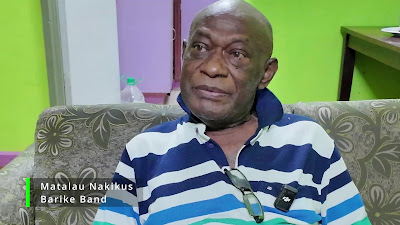In an exclusive interview on 7 February 2024, Mr Reuben Yapi, Chairman of the Morobe Primary Producers Cooperative Association (MPPCA), painted a compelling picture of the untapped potential for cocoa farming in Morobe Province, Papua New Guinea. Speaking from the heart of a newly established 5,000-seedling nursery at Butibam Village in Lae, he envisioned a future where local cocoa farmers could become millionaires by leveraging their land and manpower amid soaring global cocoa prices.
A Nursery of Dreams
Set on land recently acquired from local villagers, this pioneering nursery serves as a beacon of hope for farmers struggling to access quality planting materials. The MPPCA’s goal is to empower Morobe farmers by providing high-quality seedlings, ensuring sustainable cocoa production. With additional nurseries strategically located across Lae, the initiative aims to meet the rising demand for cocoa and position Morobe as a leader in the global market.
But since this interview more than a year ago, little progress has been made in expanding Morobe’s cocoa industry. Prices remain at their highest, yet large-scale cocoa development has stagnated. Why is this golden opportunity not being seized?
Click to watch the video interview with Reuben YapiA Market Crying for Supply
The world market is experiencing a significant cocoa shortage, with global production unable to meet demand. This has driven prices to record highs, offering a unique opportunity for Papua New Guinea’s cocoa producers. However, despite Morobe’s vast land resources and willing farmers, the industry continues to lag behind.
“We haven’t planted enough cocoa,” Mr Yapi stressed.
“The market is waiting, but many farmers are still hesitant. Those who planted early are reaping the rewards, while those who delayed are missing out.”
This raises an urgent question: Why is Morobe not capitalising on this opportunity?
The Roadblocks to Expansion
Several challenges stand in the way of large-scale cocoa development:
Lack of Planting Materials: Farmers need access to high-quality seedlings to scale production. While MPPCA has established nurseries, these efforts require greater support to meet the rising demand.
Logistical Barriers: Transporting cocoa from remote areas to markets is costly, with some farmers paying up to K90 per bag just for logistics. Without government intervention to improve road and transport infrastructure, production will remain stagnant.
Limited Extension Services: Many farmers lack technical support and training to optimise yields. The absence of sufficient extension officers to educate and guide cocoa farmers is a major hindrance to expansion.
Minimal Government Support: Despite the potential economic impact, government investment in cocoa farming remains limited. Subsidies for transport, infrastructure improvements, and policy incentives could transform the industry but have yet to materialise.
A Call to Action
For Morobe to become a cocoa powerhouse, urgent action is required. The MPPCA has laid the groundwork, but broader support is needed to realise the dream of turning farmers into millionaires.
Government Intervention: Infrastructure development, transport subsidies, and financial incentives for farmers are critical.
Private Sector Investment: Partnerships with exporters, chocolate manufacturers, and agribusiness investors could accelerate industry growth.
Farmer Mobilisation: Farmers must recognise cocoa as a business, not just a subsistence crop. Investing in high-yield varieties and adopting best practices will increase productivity.
The Future of Cocoa in Morobe
“The potential is enormous,” Mr Yapi emphasised.
“Morobe has the land, the manpower, and the market. We just need to act.”
With cocoa prices at record highs and global demand growing, Morobe is standing on the edge of a transformative opportunity. Will the province rise to the challenge and claim its share of the cocoa boom, or will it let this golden chance slip away?
The answer lies in the hands of policymakers, investors, and farmers alike. The time to act is now.
###






.jpeg)

